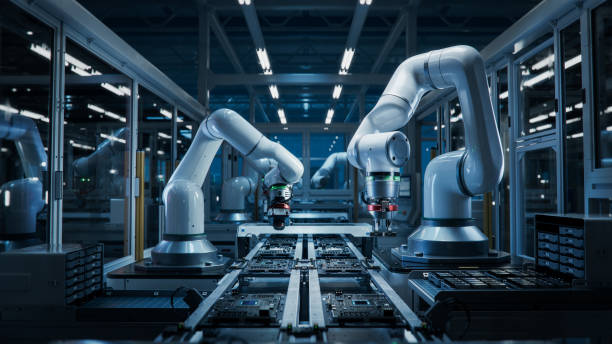Manufacturing Jobs: Roles, Skills, and Career Paths
Many economies rely on manufacturing to turn raw materials into finished goods, and employment in factories remains a core source of stable work. This article explains common job types, the skills employers look for, how technology shapes roles across the industry, and practical steps for developing a long-term career. It also covers country-specific considerations for the Netherlands and ways to find local services and positions in your area.

What roles are available in manufacturing?
Manufacturing covers a wide range of roles from assembly-line operators and machine technicians to quality inspectors, process engineers, and production planners. Entry-level positions often focus on routine tasks and hands-on operation, while mid-level roles require troubleshooting, equipment setup, and basic maintenance. Senior roles include production management, continuous improvement leadership, and supply chain coordination. Many factories hire multi-skilled staff who can rotate between stations, support night shifts, and contribute to lean manufacturing or safety initiatives. Job titles and responsibilities vary by subsector, such as food processing, electronics, or automotive manufacturing.
How to build a manufacturing career in the Netherlands?
Building a manufacturing career in the Netherlands typically combines formal education, practical training, and an understanding of local labor practices. Vocational education and apprenticeships are well established, and many employers value qualifications in engineering, mechatronics, or logistics alongside hands-on experience. Language skills (Dutch or English) and familiarity with EU workplace standards and safety regulations can improve prospects. Networking with local services like vocational schools, job centers, and trade associations helps match skills to openings. Working through temporary employment agencies is also common for gaining experience and moving into permanent factory roles in Dutch industry clusters.
What skills do modern factories require?
Factories increasingly require a mix of technical and transferable skills. Technical skills include CNC operation, PLC programming, mechanical troubleshooting, and quality measurement techniques. Soft skills such as teamwork, problem-solving, attention to detail, and adherence to safety protocols are equally important. Digital literacy matters as production systems integrate with MES (manufacturing execution systems), basic data logging, and IoT sensors. Continuous improvement mindset—familiarity with lean, Kaizen, or Six Sigma principles—helps employees identify efficiency gains. Ongoing training, whether employer-funded or through local services, keeps workers current as machines and processes evolve.
How does industry technology change job prospects?
Industry technology shifts the nature of many manufacturing jobs rather than eliminating them outright. Automation and robotics can reduce repetitive manual tasks but create demand for operators, programmers, integrators, and maintenance specialists who can manage automated lines. Additive manufacturing (3D printing), advanced materials, and data analytics open specialized roles in design, prototyping, and process optimization. Workers who combine practical shop-floor experience with digital skills—such as interpreting sensor data or adjusting process parameters—find more resilient career paths. Upskilling and cross-training are common employer strategies to retain staff as technology adoption grows.
Where to find manufacturing jobs and progress in your area?
Job seekers can use multiple channels to find manufacturing positions in their area: company career pages, industry-specific recruiters, local job centers, vocational schools, and online job boards. For hands-on roles, temp agencies and staffing firms often provide entry routes that lead to permanent placements. Apprenticeships and internships arranged through educational institutions or trade groups can provide structured career ladders. When evaluating opportunities, review job descriptions for training offers, shift patterns, and progression paths. Local services such as workforce development programs may offer subsidized training or certification to help with transitions between factory roles or into supervisory positions.
Conclusion
Manufacturing jobs span a wide spectrum from manual assembly to advanced process engineering, and a sustainable career in the sector blends practical experience with technical and digital skills. National contexts like the Netherlands influence training pathways, language expectations, and regulatory norms, while industry technologies continually reshape role requirements. By targeting relevant education, leveraging local services, and focusing on adaptable skills, workers can navigate opportunities across factories and find routes for progression within the broader manufacturing industry.






